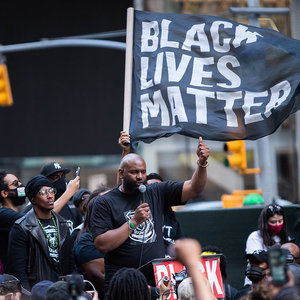(Photo credit: Anthony Quintano via Flicker)
Source: philanthropynewsdigest.org, November 2020
As the COVID-19 pandemic continues to exacerbate longstanding structural inequities based on race, many foundation leaders are making significant changes to their organization’s policies and practices, a report from the Center for Effective Philanthropy finds.
Based on survey responses from two hundred and thirty-six foundations — including a hundred and seventy signatories to a pledge hosted by the Council on Foundations to act with “fierce urgency to support our nonprofit partners, as well as the people and communities hit hardest by the impacts of COVID-19” — and interviews with forty-one foundation leaders, the report, Foundations respond to crisis: A moment of transformation? (28 pages, PDF), examined how foundations are responding to this year’s linked COVID and racial justice crises. According to the report, the most common changes enacted by foundations include the loosening or elimination of grant restrictions (66 percent), the loosening of grantee requirements (64 percent), converting as many new grants as possible into unrestricted funding (57 percent), and contributing to emergency funds (52 percent) — changes that many foundations said they were planning to implement pre-pandemic but have moved forward on an accelerated basis as a result of the virus. The survey also found that, as of July and August, 72 percent of survey respondents said they had increased or would increase their 2020 grantmaking above what they had previously budgeted, with 41 percent of them saying the increase would be 10 percent or less.
Funded by the Ford Foundation, the study found that nearly 90 percent of survey respondents were making new efforts to support organizations serving communities disproportionately impacted by the public health and economic consequences of COVID-19, including people of color, people with disabilities, lower-income people, and undocumented immigrants; that more than half were giving a higher percentage of grant dollars to organizations created and led by the most severely impacted communities, including Black, Latinx, and lower-income communities; and that most foundation leaders said they were working to incorporate racial equity into their grantmaking or programmatic strategies.
Three-quarters of respondents also said they were newly focused on doing a better job of listening to grantees and the communities they serve, while half emphasized the need to address inherent funder-grantee power differentials and change how they use their own power. Interviewees also were hopeful that this year’s events would cause funders to change how they do their work in the future and transform philanthropy for the better, with two-thirds expressing a hope that foundations would not return to old practices post-pandemic.
“Many of those we interviewed view these changes as long overdue and hope that they continue after the current crises fade. Whether that occurs, of course, remains to be seen,” the report’s authors write. “Given the lack of change for so many years prior, only time will tell if these changes are permanently incorporated into foundations’ practices.”
(Photo credit: Anthony Quintano via Flicker)

